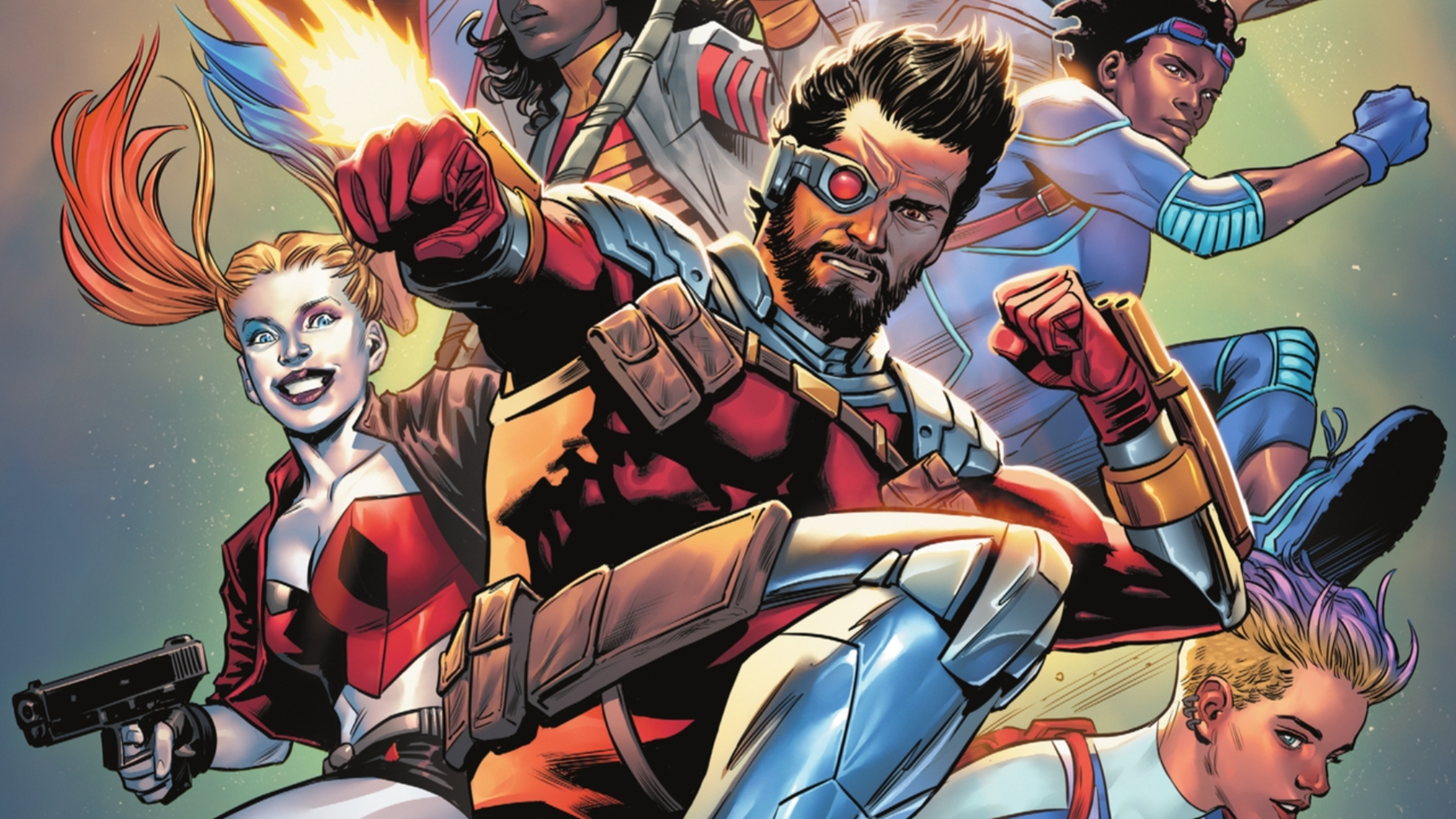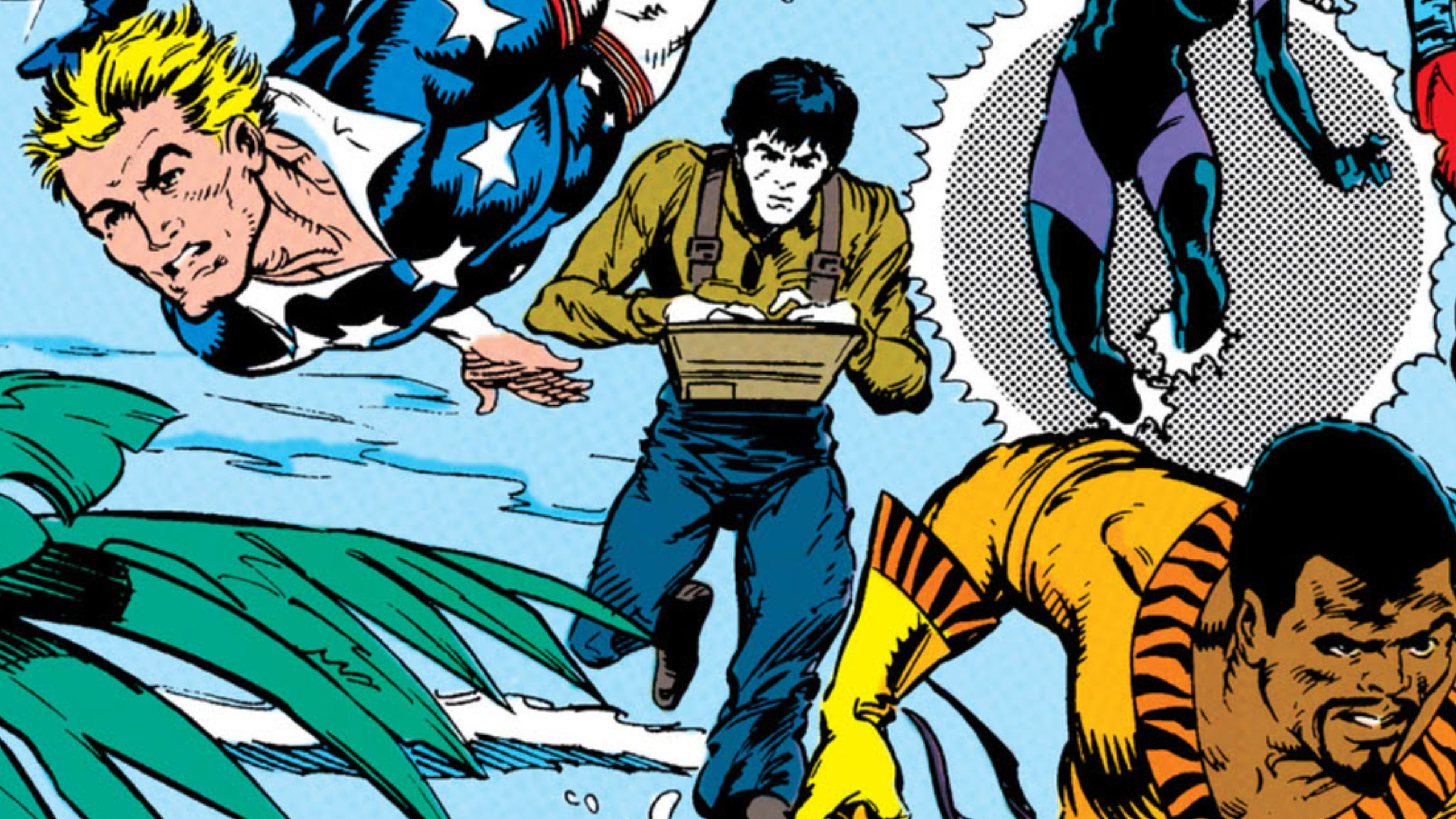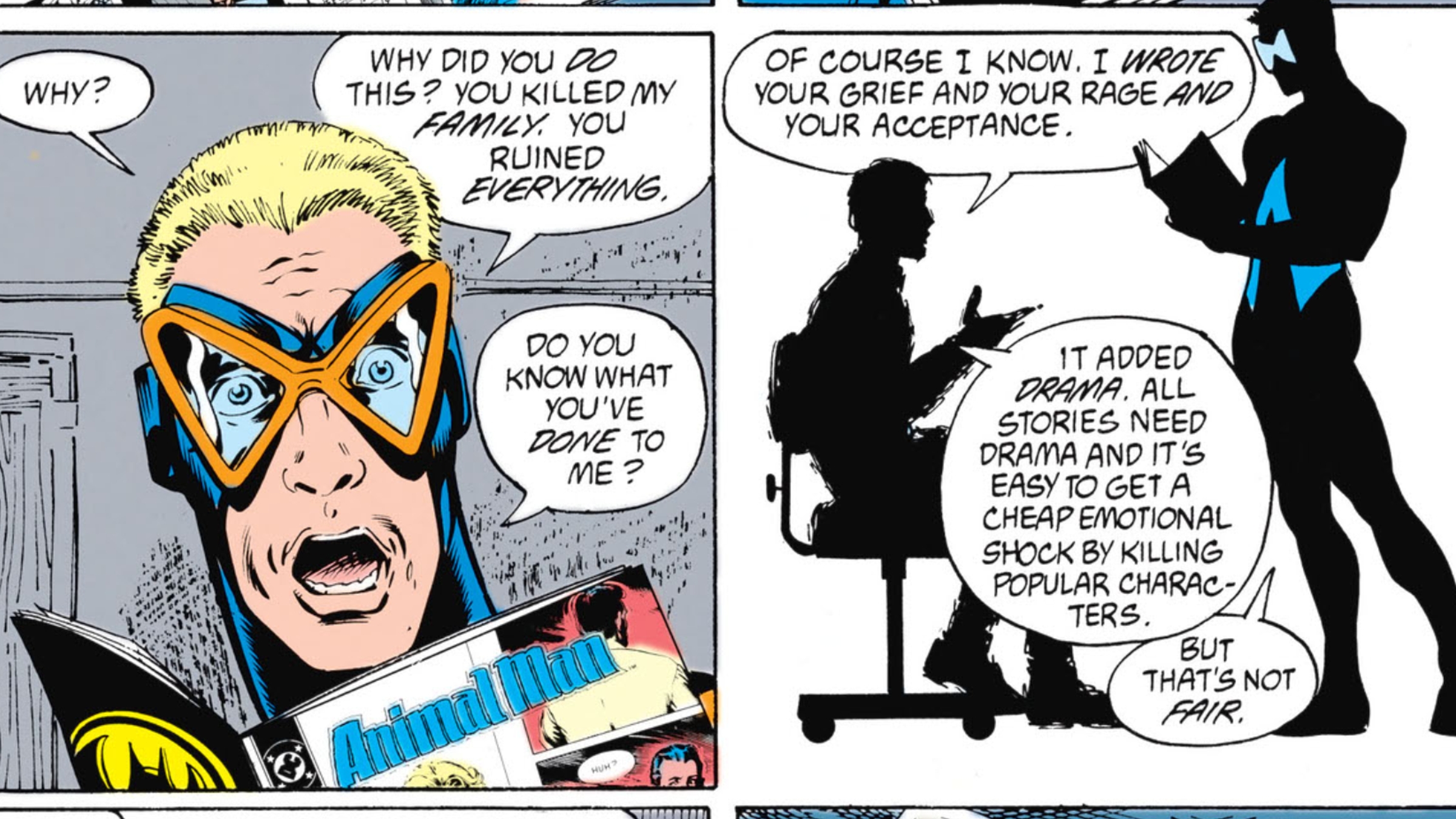
One of the most unusual facts about DC Comics is that a real person once served on the infamous Suicide Squad. Over the years, Task Force X has included many surprising members – from obscure villains to beloved, quirky characters. There always seems to be room for anyone on the team, likely because the lineup changes often! What makes the Suicide Squad so interesting is that it draws members from all over the DC Universe, even those who helped create it.
Let’s back up for a moment. If you’re familiar with the comic Animal Man (be warned, spoilers ahead!), you know that writer Grant Morrison – famous for their incredible work on the series in the late 1980s – actually appears in the final issues. They share a meaningful conversation with Buddy Baker before giving him a satisfying conclusion. However, that wasn’t the last time Morrison showed up in the DC Universe. Less than a year later, they reappeared as part of a larger comic book event, but in a surprisingly unfortunate and ironic role: as expendable character in the Suicide Squad.
Grant Morrison Went from DC Comics God to Sacrificial Suicide Squad Member

When Grant Morrison finished writing Animal Man in 1990, a particular character was no longer needed and was dropped from the story with the new writer. However, a year later, DC Comics released Suicide Squad #58, which was part of the larger “War of the Gods” storyline. In this issue, Black Adam approaches Amanda Waller, requesting her help to defeat Circe, whom he considers his greatest obstacle to global power. Seeing Circe as a threat as well, Waller assembles a new team of Suicide Squad members to aid Adam in his quest.
Among the new recruits is a mysterious figure known only as ‘the Writer’ – it’s actually Morrison’s version of Animal Man. They explain to the team that by writing themselves into the Animal Man story, they became a permanent part of the DC Universe. Now, someone else is controlling them, just like they used to control Animal Man. They still have some power, able to predict events using a computer, but their control is limited by whoever is currently writing their story. Despite this, the Writer is sent with the Suicide Squad to attack Circe’s fortress.
The Suicide Squad puts up a good fight, but the combined force of Amazon warriors and Bestiamorphs overwhelms several members. The Writer frantically tries to type their way out of danger, inventing lucky escapes and unbelievable coincidences. Unfortunately, they suffer from writer’s block at the worst possible moment. Before they can recover, a werebeast steals their computer and attacks them. It’s been known for years that Morrison wrote themselves into the DC universe, but I only recently learned just how brutally their story ended.
Grant Morrison’s Fate is the Ultimate Ironic Fate

I’m a big fan of Animal Man, and one of the most interesting parts of the story is Grant Morrison’s commentary on why suffering is often included in fiction. In a final conversation with the hero, Buddy Baker, Morrison explains that he put Animal Man through so much loss – the death of his wife and children – because stories need conflict. It’s a thought-provoking discussion about the responsibilities of creators to their work and the ethics of storytelling. Thankfully, Morrison did bring Animal Man’s family back to life once the story concluded, acknowledging that Buddy didn’t need to suffer anymore.
What’s fascinating about including Morrison in Suicide Squad is the irony of the situation. Morrison, as a fictional character, was always at the mercy of a writer’s choices, experiencing pain and hardship to drive the narrative. While John Ostrander could have chosen any obscure DC character to play the Writer, killing off Morrison feels deliberate. It likely served to highlight Morrison’s own belief that suffering creates compelling stories – or perhaps it was simply a playful jab at their expense.
As a huge comic book and movie fan, I always appreciated the clever inclusion of Grant Morrison as a character in Suicide Squad. It felt like a really cool nod to one of his most famous works, and a fascinating way to explore the connection between an author and their creations. Instead of just creating a new, disposable character, they took a risk by putting Morrison into the story, even if it meant a pretty brutal end for him. It wasn’t just shock value, though; it felt like a continuation of the ideas Morrison himself had been playing with about authorship and fictional suffering. It was a bold move, and one I really enjoyed seeing play out.
Read More
- Darkwood Trunk Location in Hytale
- Best Controller Settings for ARC Raiders
- Hytale: Upgrade All Workbenches to Max Level, Materials Guide
- How To Watch A Knight Of The Seven Kingdoms Online And Stream The Game Of Thrones Spinoff From Anywhere
- Ashes of Creation Rogue Guide for Beginners
- PS5’s Biggest Game Has Not Released Yet, PlayStation Boss Teases
- Shonda Rhimes’ Daughters Make Rare Appearance at Bridgerton Premiere
- Olympian Katie Ledecky Details Her Gold Medal-Winning Training Regimen
- Arc Raiders Guide – All Workbenches And How To Upgrade Them
- Nicole Richie Reveals Her Daughter, 18, Now Goes By Different Name
2025-11-21 21:48